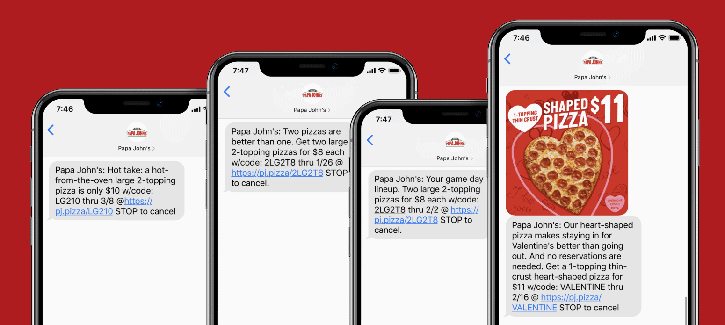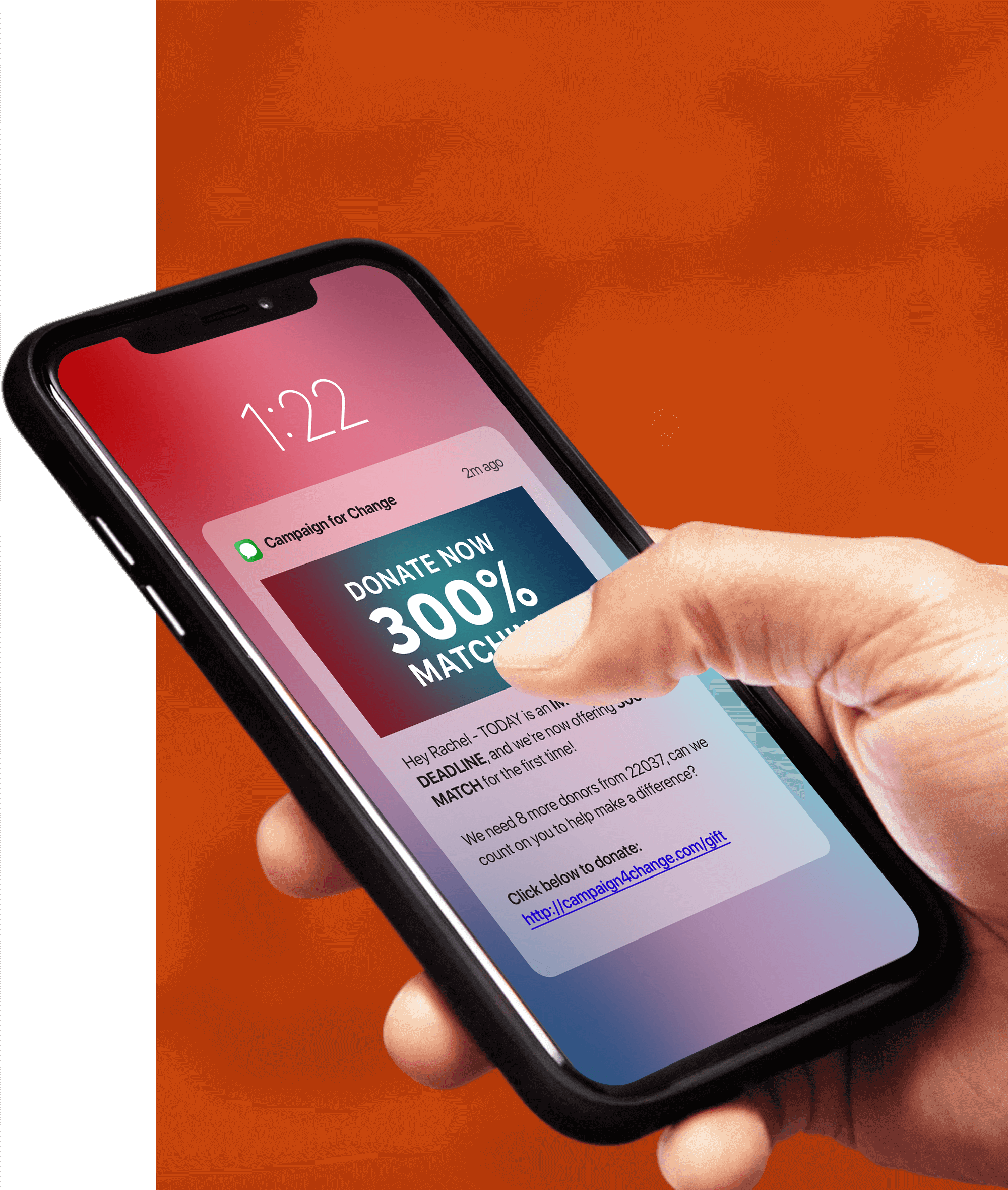If you want to set up a text message marketing campaign, you must understand the Telephone Consumer Protection Act (TCPA) or you could face some hefty fines for SMS spam, like Jiffy Lube and TextMarks and the Academy of Design and Technology.
For more information on how the TCPA impacts text message marketing, download our guide to TCPA compliance.
Summary of the TCPA—Restrictions on Use of Telephone Equipment
This is a summary of the Telephone Consumer Protection Act (TCPA) 47 USC § 227 – Restrictions on use of telephone equipment of 1991 as it applies to text message marketing. View the entire TCPA on GovInfo.gov.
(a) Definitions
Many have argued that a text message marketing platform like Tatango isn’t an “automatic telephone dialing system.” In 2007, Judge Claudia Wilken ruled in the case of Satterfield v. Simon & Schuster, No. C 06-2893 CW, 2007 U.S. Dist. LEXIS 46325 (N.D. Cal. June 26, 2007), that the TCPA does not cover SMS text messages because how the SMS messages were sent does not fit the statutory definition of an “automatic telephone dialing system.” This ruling was overturned by the Ninth Circuit Court of Appeals which ruled that the TCPA applies to unsolicited cellular telephone text messages advertising the commercial availability of goods or services. Part of this section of the TCPA, relevant to text message marketing, reads:
(1) The term “automatic telephone dialing system” means equipment which has the capacity—
(A) to store or produce telephone numbers to be called, using a random or sequential number generator; and
(B) to dial such numbers.
(b) Restrictions on use of automated telephone equipment
This section clearly states that you can’t use automated telephone equipment to send messages to anyone within the United States to any telephone number assigned to a cellular telephone unless you have their “prior express consent.” If found in violation of (b)(1) the recipient can receive $500 in damages for each violation (SMS spam message). Further, if the court finds that the company willfully or knowingly violated (b)(1), the award can increase up to but not more than $1,500 for each SMS spam message. Part of this section of the TCPA, relevant to text message marketing, reads:
(1) Prohibitions
It shall be unlawful for any person within the United States, or any person outside the United States if the recipient is within the United States—
(A) to make any call (other than a call made for emergency purposes or made with the prior express consent of the called party) using any automatic telephone dialing system
(iii) to any telephone number assigned to a paging service, cellular telephone service, specialized mobile radio service, or other radio common carrier service, or any service for which the called party is charged for the call;
Another part of this section reads:
(3) Private right of action
A person or entity may, if otherwise permitted by the laws or rules of court of a State, bring in an appropriate court of that State—
(A) an action based on a violation of this subsection or the regulations prescribed under this subsection to enjoin such violation,
(B) an action to recover for actual monetary loss from such a violation, or to receive $500 in damages for each such violation, whichever is greater, or
(C) both such actions.
If the court finds that the defendant willfully or knowingly violated this subsection or the regulations prescribed under this subsection, the court may, in its discretion, increase the amount of the award to an amount equal to not more than 3 times the amount available under subparagraph (B) of this paragraph.
Learn More About SMS Short Code Compliance With These Resources:
- TCPA Survival Guide eBook
- Can I Legally Text Message My Customers?
- What Does Written Consent Mean in SMS Marketing?
- What Does Consent Is Not a Condition of Purchase Mean?
Have more SMS marketing questions? Get in touch with one of our experts.

